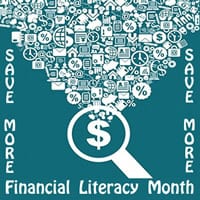Credit Card Interest
Here’s the tip from December 10 – Money Drains month:
This is the biggest waste out there – paying interest on your credit cards. A perfect situation would be to never pay a penny in interest charges. But this is the real world and sometimes it cannot be avoided.
If you learn nothing else from this book, get your finances in order and develop good money habits. That includes getting rid of debt and only charging what you can afford to pay off monthly.
To purchase a copy of either of my books Thrive In Five: Take Charge of Your Finances in 5 Minutes a Day or 111 Ways To Save
#JillRussoFoster #30WaysToSave
